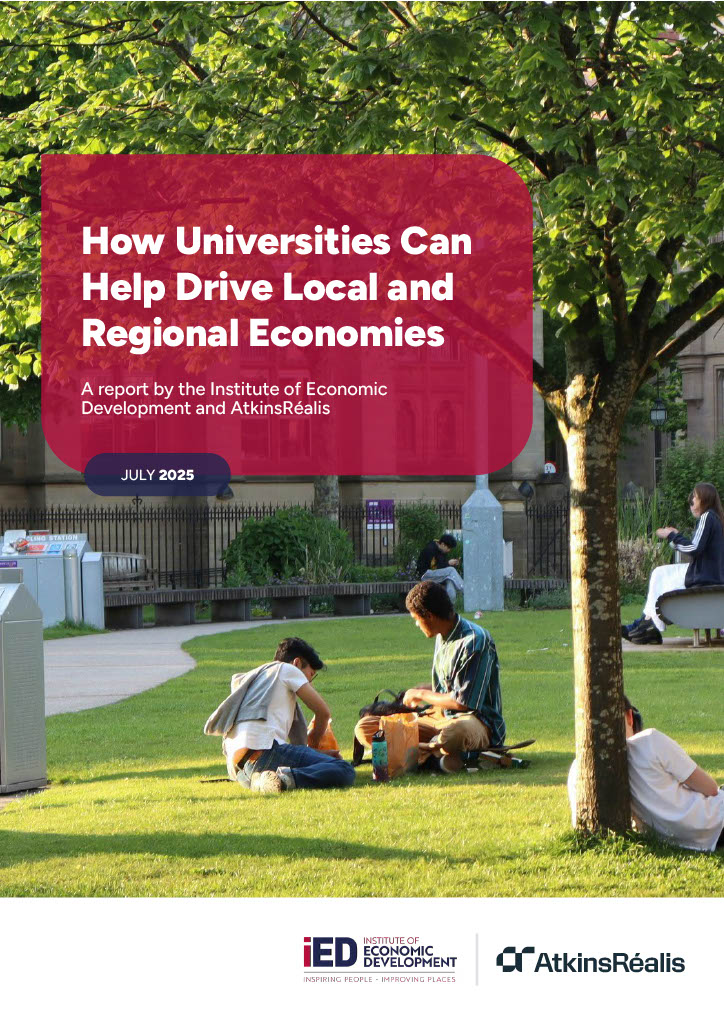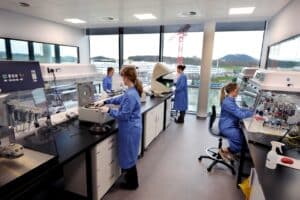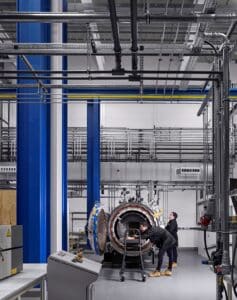Sign-up here to receive the monthly iED bulletin
Sign-up here to receive the monthly iED bulletin

A new report by the Institute of Economic Development (iED) and AtkinsRéalis “puts universities at the centre of the debate on how to generate growth in local and regional economies with national impact”. It is critical that government incentivises higher education and local government to focus on economic development, through policy guidance, capacity building, and budgets, the co-authors say.

How Universities Can Help Drive Local and Regional Economies, which is aimed at economic development practitioners, shares best practice and makes a series of recommendations to government to deliver the growth and innovation agendas that took further shape in the Spending Review and Industrial Strategy White Paper.
In line with government’s shift towards a place-based approach to growth, the report looks at the opportunities for universities as hubs of innovation and economic drivers across the UK. It centres on a series of in-depth case studies on Edinburgh and South East Scotland, Greater Manchester, Lincolnshire, and White City London. It also offers insights into initiatives in Barcelona, Durham, Teesside, South London, and Yorkshire.

Together these case studies explore, from universities’ perspective, how partnerships with local government and business can develop successful innovation districts, robust wider multi-institutional place-based economic partnerships, and aid universities’ role as anchor institutions. The power of higher education institutions – as trusted innovators, networkers, capacity builders, income attractors, and strategists – must be harnessed. It is essential that universities are at the heart of place-based growth, the report says, “assisting with national challenges such as productivity, scaling businesses, and regional disparities in economic performance and therefore people’s opportunities”.

It concludes with a series of recommendations to drive more productive local and regional economies, including “the ways in which economic partnerships and their constituent institutions are supported, networked, incentivised and funded to help keep the UK at technological frontiers, drive productivity, regionally rebalance the economy and drive sustainable and inclusive local growth”. This can “go some way towards assisting the many universities and local councils that are facing severe ongoing financial challenges, and the businesses that have experienced for many years now, low growth in the UK economy”.
Plentiful revenue funding is vital to drive regional growth, focused on creating and growing economic ecosystems. Networks at innovation districts could be supported as a new form of Industrial Strategy Action Zone, the report suggests.

The co-authors say: “There are important roles for other local parties too, including communities, investors, and further education. National government should assist by ensuring sufficient financial performance, and cultural incentives for institutions and individuals to focus more deeply on economic partnerships; including ensuring they are sufficiently resourced for important roles in driving innovation and wider economic growth, responding to local and regional economic conditions. Agendas and structures may differ between the agendas of the UK and devolved governments, but these principles are long-term and consistent.”
Writing in the report Foreword, iED Chair Tom Stannard said:
“The need for growth and increased productivity across this country is urgent and, as outlined in our Grow Local, Grow National manifesto, the focus on how we work together to achieve it locally and regionally will only increase.
“While much has been done historically to encourage collaboration between the three pillars of government (local and national), business, and academia, more is needed. The increased profile of this ‘triple helix’ way of working is therefore welcome, and in this report we focus on how the challenges of aligning institutions can be overcome to secure successful long-term delivery. Universities play critical roles in this work due to their research, technologies, knowledge, and expertise. They are distributed across the UK and their size makes them key anchor institutions in many places. Better harnessing this capacity and capability must be a concern of economic development practitioners locally, regionally, and nationally.
“We hope this report is of value in guiding economic development practitioners towards solutions that harness the latent capacity of our institutions to drive the growth and productivity increases that this country and its communities require.”
John Rayson, Managing Director of the North at AtkinsRéalis, commented:
“Universities play a key role in regional economic development as engines for innovation. There is an increasing recognition that regional strategies for socio-economic growth must reflect the priorities of local communities and the potential for new and existing industries to develop, expand and innovate to unlock opportunities.
“That also requires strategic thinking and the alignment of academia, government and private sector to ensure close collaboration and the development of plans that create catalysts for place-led growth.”
The report is now available to download here. Participating institutions include:
Durham University
Imperial College London
London South Bank University
Teesside University
University of Edinburgh
University of Glasgow
University of Lincoln
University of Manchester
Yorkshire Universities
22@Barcelona
-ENDS-
Contact: Phil Smith, Institute of Economic Development PR consultant, on 01778 218180 / 07866 436159 /phil@philsmithcommunications.co.uk.
NOTES TO EDITORS
The Institute of Economic Development (iED) is the UK’s leading independent professional body representing economic development and regeneration practitioners. Established over 40 years ago, the iED’s key objective is to represent the interests of economic development practitioners and ensure their views are widely expressed and noted. The iED is committed to demonstrating the value of economic development work for local and regional communities; the pursuit of best practice in economic development and the attainment of the highest standards of professional conduct and competence.